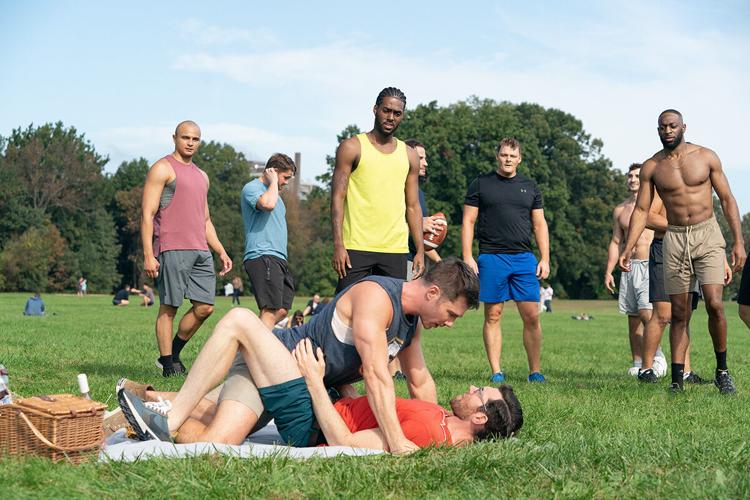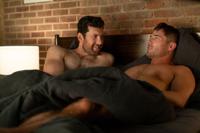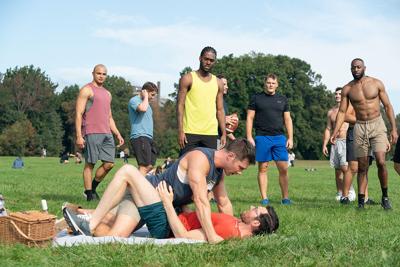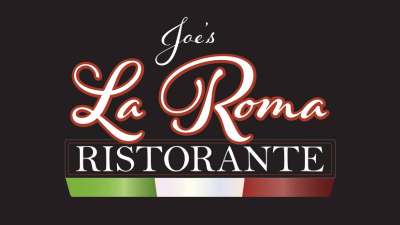Editor’s note: The views and opinions expressed in this review are solely those of Marlon Wallace and do not necessarily reflect the views and opinions of WBOC.
Notably, this is the first film from a major movie studio to feature an entirely LGBTQ principal cast. There have been a few, Hollywood films to focus on a same-sex relationship. Love, Simon (2018) is one of the recent ones. Yet, that film had its titular character played by a non-LGBTQ person. There was a film that was released over the summer called Fire Island (2022) that in many ways beat this film to the punch. It also features an entirely LGBTQ principal cast. The only argument against it is that some believe it wasn’t released by a major, Hollywood studio. It didn’t get the kind of wide, theatrical run that this film is getting. I think there is a case to be made why Fire Island is not that far removed from this one, though it is clear that this film has a higher budget. Thus, more money makes it more important in most people’s minds, even though it shouldn’t be.
Over the past few decades, there have been a myriad of independent films that have been comprised of LGBTQ actors playing LGBTQ characters. They’ve been referred to as queer cinema. These films get limited releases, only playing in theaters in select cities, or they’re released direct-to-video. When it comes to same-sex romances between two men, numerous titles within queer cinema have accomplished what this film attempts to accomplish or have explored the issues and themes of this one. What this film explores is the idea of masculinity within the gay community. There’s also an aspect here of how homosexuality or queerness should be represented. The latter part might be more interesting than the former.

Billy Eichner (Difficult People and Parks and Recreation) stars as Bobby Lieber, a radio host who has his own podcast. He lives in New York City. He’s 40 and single. His reason for being single stems from issues of him not feeling attractive, at least on a certain level. It also stems from confidence issues where he was criticized from most likely heterosexual people that he’s “too gay.” This has resulted in him being aggressive in terms of expressing homosexuality or talking about it. In fact, his podcast is about the history of LGBTQ people and educating Americans about LGBTQ figures throughout time.
Eichner is also a writer and producer on this film. While his character is all about educating people about LGBTQ history, what his character does and what this film does almost from the beginning is mock or satirize media featuring LGBTQ people or especially some specific LGBTQ media figures. This is something mainstream audiences don’t get. Mainstream audiences don’t usually get humor or comedy that’s from someone within the gay community making jokes or poking fun at that same gay community. Yes, there are LGBTQ comedians who have gotten standup specials on TV and online streaming services, but none that have gotten this kind of a boost with a wide theatrical release.

Judd Apatow is a producer on this film. Apatow has given plenty of standup comedians a boost with a wide theatrical release. This was the case with Pete Davidson in The King of Staten Island (2020) and Amy Schumer in Trainwreck (2015). Plenty of other comedians from Saturday Night Live and elsewhere have gotten this boost. Most of whom have been straight. Some gay comedians have been in Hollywood films but those films haven’t been built around them or their queer identities. Apatow with director and co-writer Nicholas Stoller (Neighbors and Forgetting Sarah Marshall) have decided to give a gay comedian that boost or that platform, a platform that allows Eichner to poke fun at the gay community with a kind of insight that one couldn’t get from Davidson or Schumer, despite both of them having played gay characters.
However, there could be a line, which could make the comedy here a bit dicey. There are some jokes that are absolutely warranted and other jokes that feel like they’ve crossed some boundary. For example, a lot of the jokes here are critiquing this idea of masculinity within the gay community and the privilege or preferences that can come from that masculinity. Eichner’s veiled and rather obvious jokes at Colton Underwood, the former NFL player and reality TV star, are in that vein. Eichner’s jokes about the muscular and bodybuilder-like physiques that have become the standard of beauty are also in that vein and are spot on. There are some jokes though like the ones aimed at the series Queer Eye (2018) or Schitt’s Creek (2015) that feel off base.

Luke Macfarlane (Single All the Way and Brothers & Sisters) co-stars as Aaron Shepherd, a lawyer who is also 40 and single. He spends his free time going to gay clubs or going onto the dating app, Grindr. He basically just has casual sex, including threesomes and orgies. He doesn’t seem to be interested in anything long-term or more serious. He’s gay, but he’s very masculine. He’s definitely one of those muscular types with a bodybuilder-like form, which he shows off by being shirtless on dance floors. Yet, he rejects or avoids anything that might make him seem gay off those dance floors.
He’s not in the closet, but he might be described as straight-acting or behaving in a way that makes him seem heterosexual. When he talks, he has a deep voice. He’s into sports and violent video games. He’s attracted to toughness and roughness, and not necessarily talking about emotions or pop culture things that are more associated with gay culture or iconography. He’s a stereotypical “bro.” Aaron’s relationship with Bobby is the central focus of this film and their clashing over this issue of masculinity. Plenty of films in the history of queer cinema have dealt with two gay men clashing over their various levels of masculinity. One guy who’s very masculine will be partnered with a guy who’s less so, if not more effeminate. Bobby isn’t effeminate but he’s more overt or more blunt with expressing his homosexuality than Aaron.

From Billy’s Hollywood Screen Kiss (1998) to Trick (1999) to All Over the Guy (2001) to Latter Days (2003) to Adam & Steve (2005) to Noah’s Arc: Jumping the Broom (2008), there have been a slew of titles in queer cinema that have been about this exact thing. All these films have dealt with two guys of opposing levels of masculinity having to navigate whether they’re compatible and how much those levels of masculinity are the result of either internalized or even externalized homophobia. Even Schitt’s Creek had that as well. One of my complaints about Love, Simon is that it was yet another coming-out story in which queer cinema had already given us tons of coming-out stories. A complaint here is that it gives us yet another push-and-pull with masculinity in which queer cinema has all but rendered hackneyed.
Eichner’s film doesn’t give us anything more insightful about gay culture than the American remake of Queer As Folk (2000). There’s hardly anything shocking here than in that Showtime series. Yet, it is funny and Eicher’s sense of humor shines here, as he crafts very funny bits and clever scenes of dialogue. One of the funniest bits involved telling one’s grandparents about a throuple. However, there is a moment that caught my attention above everything else. When Bobby meets Aaron’s parents, Bobby challenges Aaron’s mother who is a teacher. Bobby pushes the idea that introducing children at a young age to gender identity and different sexual orientations is a good thing.

This moment is of course a very timely and topical one. Recently, Florida’s governor signed into law the Parental Rights in Education bill aka the “Don’t Say Gay” bill. The bill is labeled “Don’t Say Gay” because it bans classroom discussion of LGBTQ issues from students in third grade or younger. It also limits discussion of LGBTQ issues for older students as well, using a vague “age appropriate” measure. In a lot of ways, this film is a rebuke of that Florida law. Unfortunately, it doesn’t have the structure to really tackle that law or issue directly. Yet, the fact that Eichner’s character addresses it at all is an absolute bonus.
Spoiler alert! Spoiler alert! Spoiler alert!

Given this film is a romantic comedy, it’s probably not much of a spoiler to say that Bobby and Aaron end up together by the end. It’s strange because there’s a moment toward the end where one thinks that Bobby and Aaron won’t end up together. It’s weird because in that moment, I agreed with the idea of the two of them parting ways. It would’ve been a great subversion of the genre. Also, Bobby spends the majority of the film being critical of men who only want to be with dumb jocks or of the particular body type that is the muscular or super athletic, masculine guy but who aren’t as intelligent. Ironically, Bobby ends up with such a guy. No, Aaron is not just some dumb jock. Aaron is a lawyer, but, at no point is Bobby questioned or called out for whether or not he would be interested in Aaron if he weren’t as muscular or good-looking by what are these unrealistic standards of being super muscular.
Rated R for strong sexual content, language and drug use.
Running Time: 1 hr. and 55 mins.
In theaters.



































